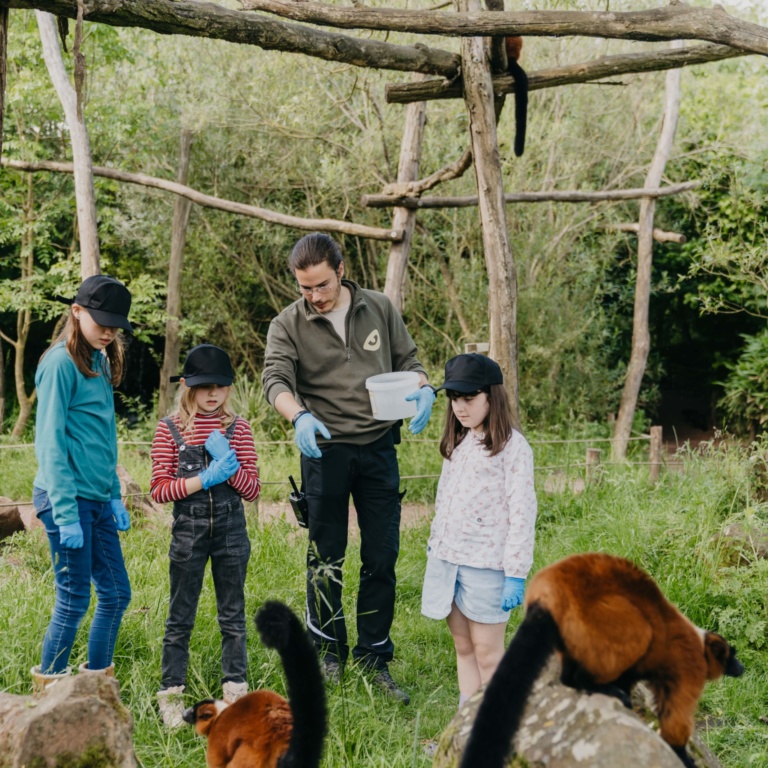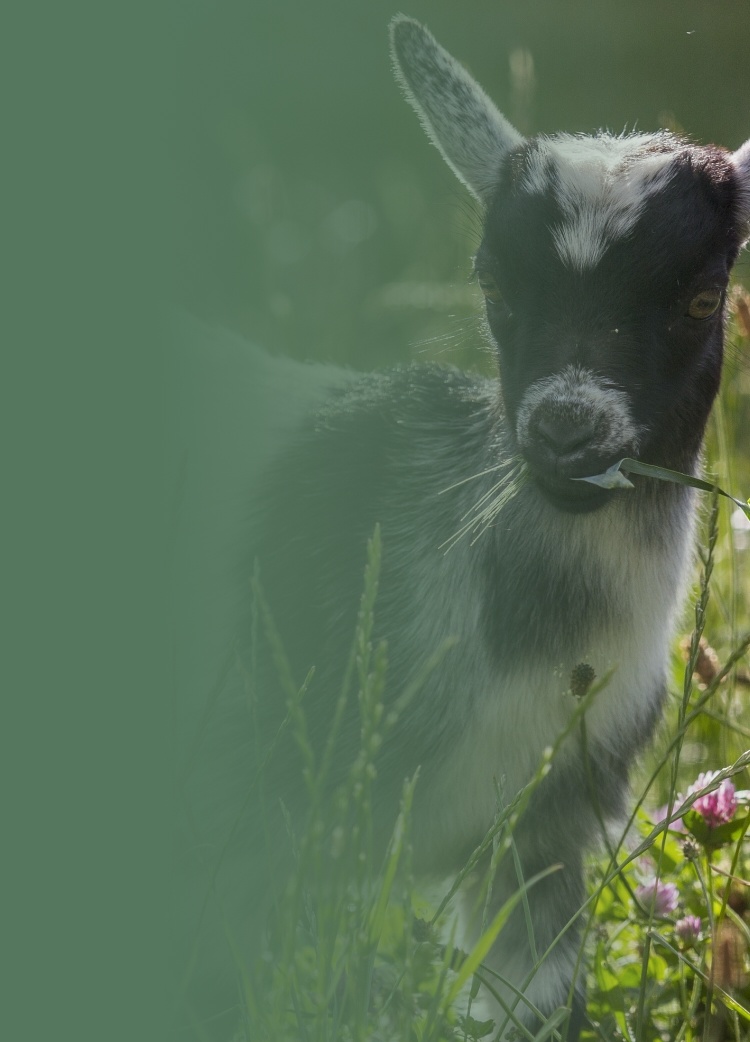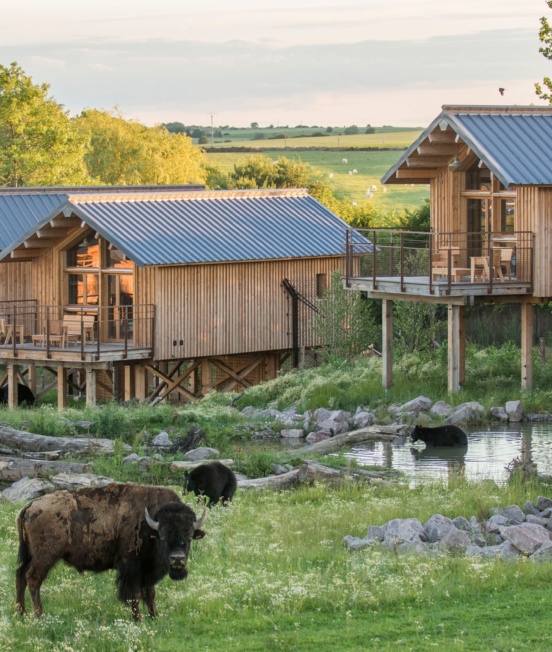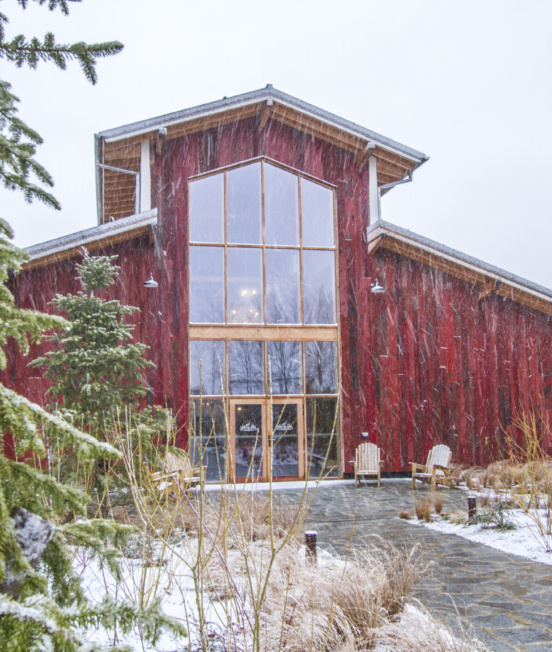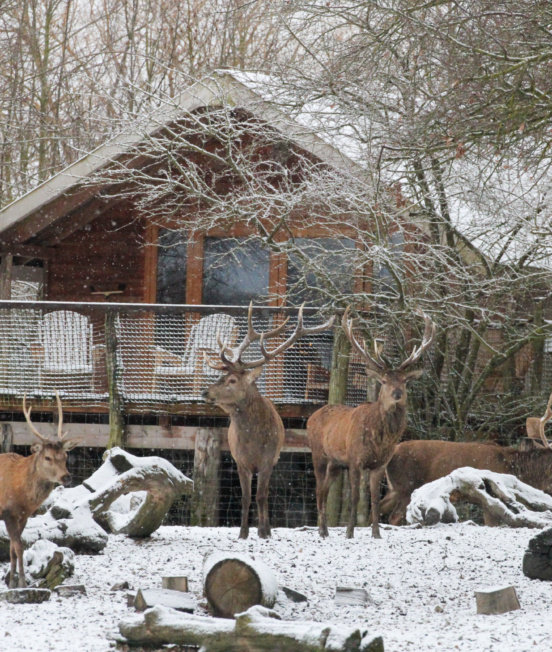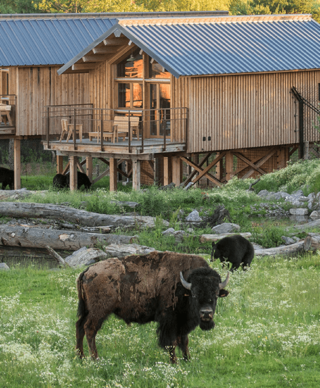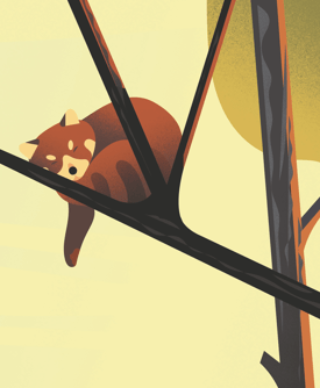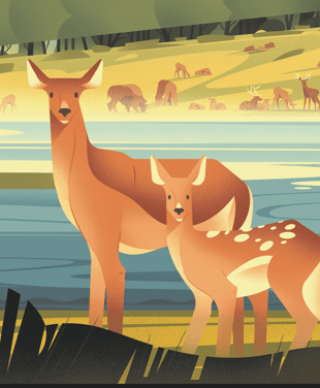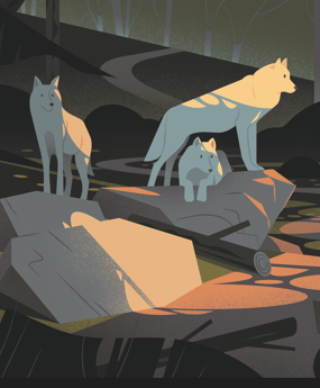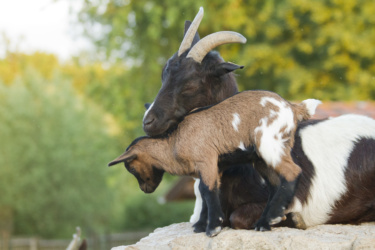
Get to know the farm animals
Before it became a top-notch reserve for European wildlife, Sainte-Croix was a farmland. Bordering the three discovery trails that cover the 120 hectares of the park, the educational farm comprising a pigsty, sheepfold, stables, rabbit hutches, pigeon house and chicken runs stands as a reminder of the park’s rural past and a tribute to Gérald Singer, the visionary farmer who founded the nature reserve. The farmyard named after him is no ordinary one. It is centred on ecology, designed to conserve domestic animal species.
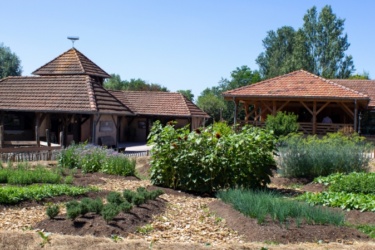
The vegetable garden and the mandala
Animals, and more ! Sainte-Croix is introducing an innovative market gardening project spanning 1600m², growing organic, local produce. The garden will be open to visitors. A restaurant serves dishes made with the fresh produce, in true farm-to-fork style. In keeping with our aim to reconnect people with nature, the project includes an awareness-raising campaign centred on the good sense of our rural ancestry.
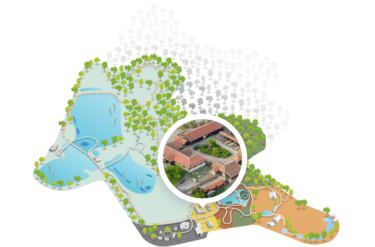
120 hectares of unspoilt countryside
Spanning 120 hectares, the Parc Animalier de Sainte-Croix is home to a selection of European fauna and a contributor to worldwide biodiversity. Explore the five areas of our leafy park where 1,500 animals representing 100 species roam freely.
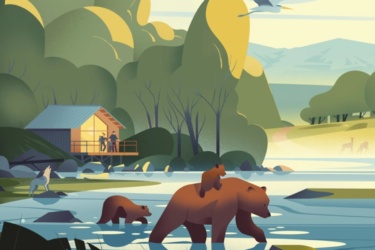
Protecting wildlife and biodiversity
At Sainte-Croix, we are committed to the conservation and protection of the environment.
-
Environnement
Since we founded the reserve in 1980, Sainte-Croix has been committed to protecting our planet. Our awareness-raising campaigns for staff and visitors have helped establish our role as leaders in nature protection instruction.
-
Conservation
More than 50 animals have been released into their natural habitats since the reserve opened.
-
Reintroduction
Captive-bred animals may be released into the wild to help increase populations of endangered species.



